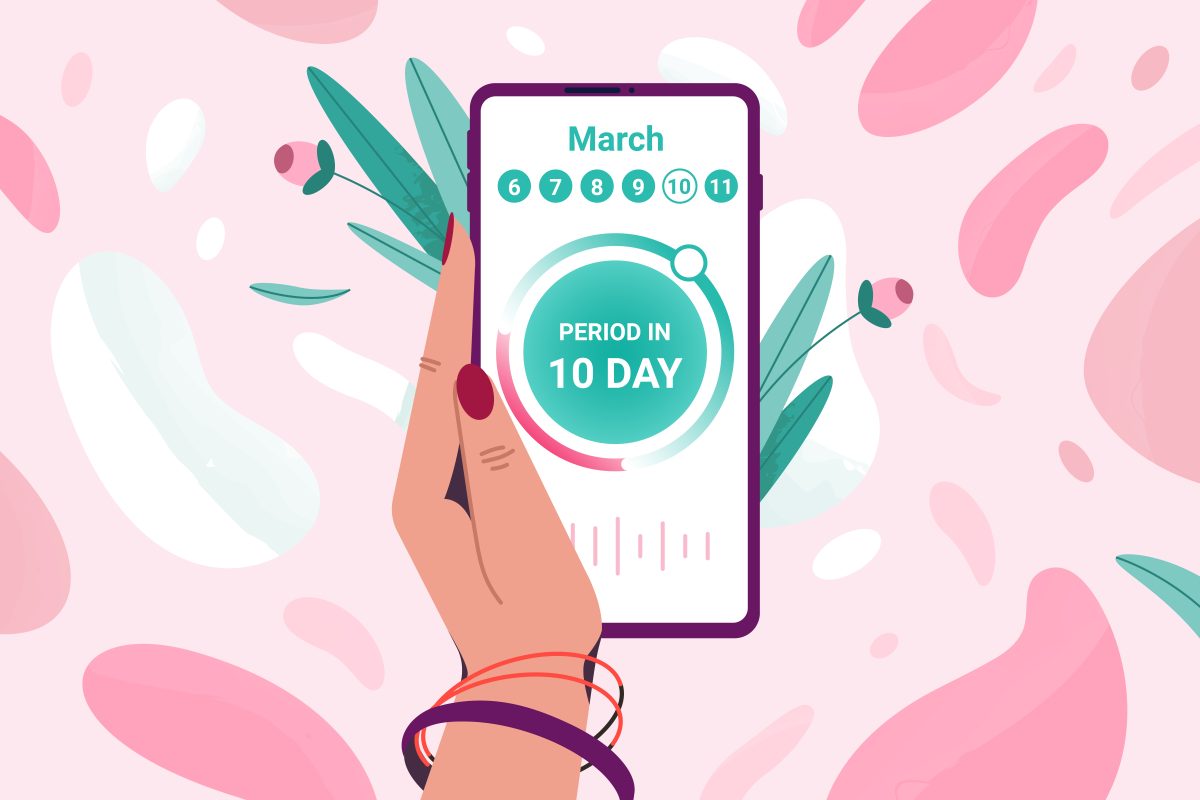The other day, I was astounded by Dr. Stacy Sims’ findings, which she shared on Steven Bartler’s podcast (“The Diary of a CEO”, 2025). She advised women to stop attempting to follow men’s exercise and nutrition research and instead learn about the length, common symptoms, emotional imbalance, energy levels, and even body temperature connected with each of their “seasons”. This would enable the development of a suitable training plan, as well as the provision of suitable food, to achieve peak performance while avoiding overload and exhaustion.
Yet, how does one get the knowledge and support needed to gain a better understanding of their own cycle?
In 2015, Dmitry and Yuri Gurski from Belarus focused on a big, underserved market with minimal competition and created Flo, a disruptive app that used predictive technology, data analytics ,and AI to guide women’s reproductive and general wellness (Olabinjo, 2024). Today, this all-in-all tracker with its engaging interface and personalized features is an absolute industry leader with 45 million active users worldwide. In 2022, the company expanded into B2B, catering to businesses looking to educate and empower their female employees through data-powered features like Health Insights, Health reports, and an AI symptom assistant (Flo, 2022).
Established as an omnichannel digital business model, Flo’s architecture produces significant value for users while concentrating on retention loops. The data gathering process begins with the first login, and with each subsequent data input, the predictions get more accurate, encouraging better customization and helping the user to achieve their goals faster. Retention is an important KPI for apps. Aside from great personalization, Flo used various additional strategic techniques to retain customers. For example, messages with data logging reminders or heads-ups for impending activities that are scheduled with predefined intervals. Furthermore, the software developers continuously offered and introduced additional value-generating features such as Secret Chats (a place to secretly discuss private matters) and Flo Stories (identical to Instagram Stories).
Personally, I’ve been a long-time user of the app and have seen how quickly it has evolved and expanded, thanks not just to the seamlessly integrated customer experience, but also to community-building activities, strong privacy, and evidence-based insights.
Nevertheless, despite this nearly flawless success story of a unique and well-executed niche-market company idea, the road is not always lined with roses. In the backdrop of multiple challenges with data monetization posed by the launch of the decentralized Web 2.0, which began a year before Flo’s establishment (Harvard Business Review, 2022), the company recently got involved in a big public controversy concerning selling personal data to Meta for targeted advertisements without user consent (Sifted, 2025). This demonstrates how important it is for any fast-paced, disruptive company to constantly maintain control of its processes and ensure data protection at all costs before losing its established competitive advantage.
List of References:
The Diary of a CEO, 2025 Exercise & Nutrition Scientist: The Truth About Exercise On Your Period! Take These 4 Supplements!,
Flo, 2022, Flo Health Launches Flo for Business, An Inclusive Approach to Women’s Health for Employees Available at: https://flo.health/newsroom/flo-for-business-launch (Accessed 13 September 2025).
Harvard Business Review, 2022, What Is Web3? Available at: https://hbr.org/2022/05/what-is-web3 (Accessed 15 September 2025).
Olabinjo, A., 2024, Flo Growth Case Study: How This Women’s Health App Became A Unicorn Available at: https://growthcasestudies.com/p/flo-growth-case-study (Accessed 13 September 2025).
Sifted, 2025, Flo Health faces multi-billion dollar lawsuit over claims it unlawfully shared data with Meta Available at: https://sifted.eu/articles/flo-health-meta-court-case-privacy/ (Accessed 15 September 2025).






